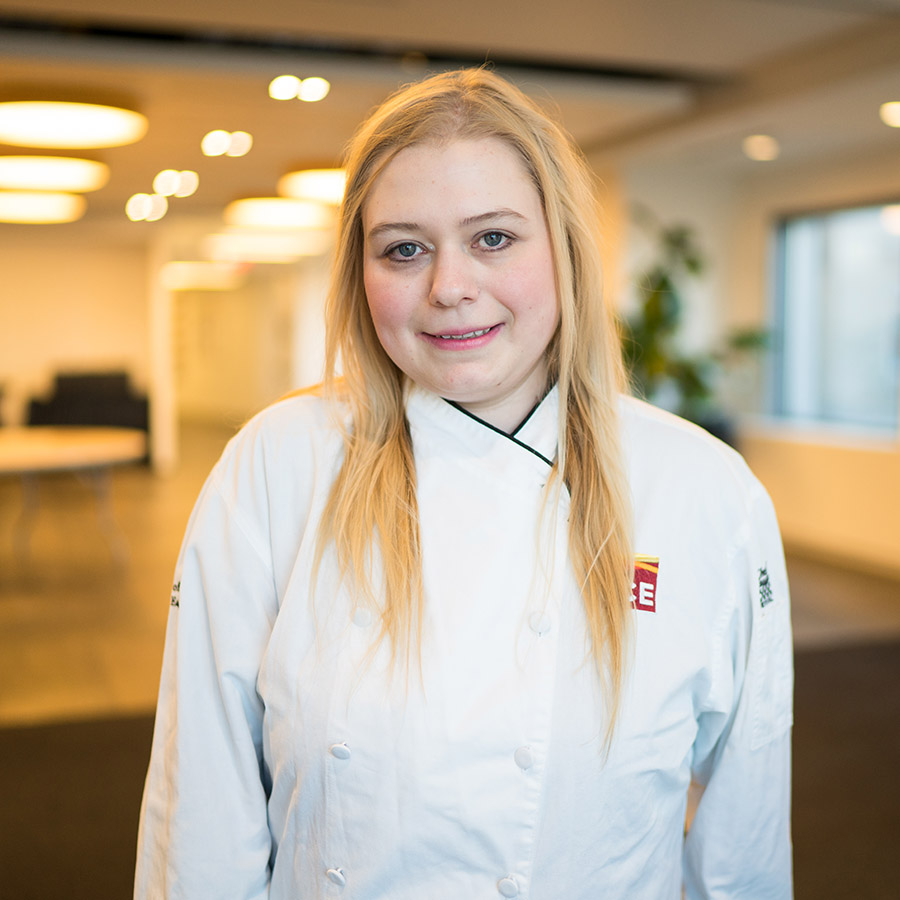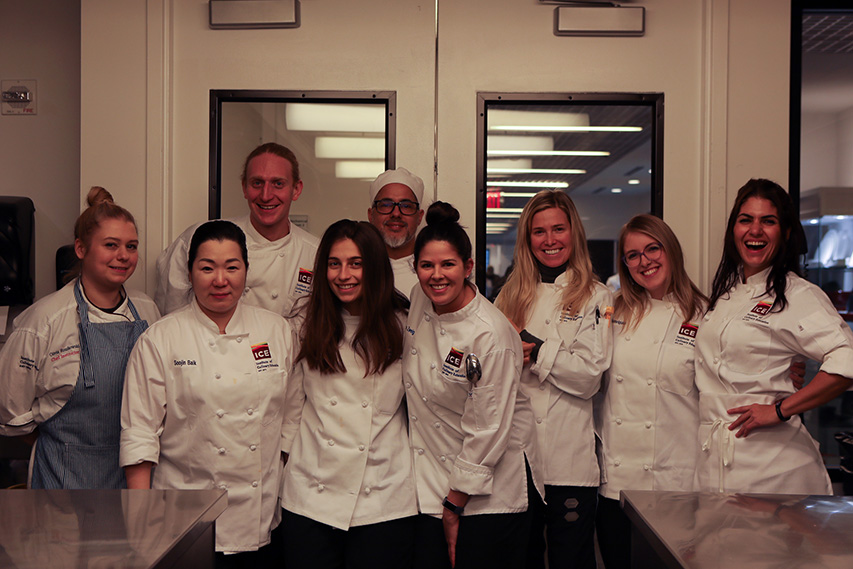Chef Olivia went from pre-med studies at Columbia, where she earned her bachelor’s in neuroscience and behavior, to working with vegetables at The Mercer Kitchen and Momofuku Ssäm Bar after completing the Natural Gourmet Institute’s (NGI) Chef’s Training Program. It turned out brain science had a lot to do with how we consume food.

“When I was in college, I procrastinated with my studies by cooking,” Chef Olivia recalls what led her to enroll at NGI. “I had the science and health background and wanted to see what food and healing was all about. It was a leap of faith on my part. Plant based wasn’t as popular in 2009, but it was new to me, and I thought it was interesting.”
Her interest grew into a change in career path. “I was going to go to culinary school for fun before med school, then I was tired of getting degrees and not doing anything with them, so I started working at restaurants.”
She gained experience as a line cook at businesses by New York City icons Jean-Georges Vongerichten, David Chang and Danny Meyer, and worked as a private chef periodically. “That’s what I like about the food industry, you’re in all these different places,” says Chef Olivia, who's also worked in recipe development editorially and is pursuing her master’s in food studies at NYU.
"It’s my mission to put real recipes out there," she says. "A lot of internet recipes don’t work, are too expensive or make people think they can’t cook.”
After all, Chef Olivia has taught cooking since 2012, when she returned to NGI, where she considers herself a perpetual student, always learning. She’s worked with fermenting, plating, raw vegan food and vegan umami while developing related recreational classes, including a dozen intensives on flavor molecules — classes people fly to New York City to take.
“You know how pastry chefs can be more about the process? That’s what plants are for me,” Chef Olivia explains. “I smoke mushrooms and pull them into carnitas like pulled pork; I smoke cashews and make a cream out of them; I make a lot of nut cheeses with seaweed, like feta out of Irish moss. People feel good eating that kind of food.”
In December, Chef Olivia started teaching recreational classes at the Institute of Culinary Education (ICE), which will offer some of her vegan umami courses in the fall. And in March, she began instructing the first Health-Supportive Culinary Arts class at our New York campus, kicking off career training at the new Natural Gourmet Center.
“We have a really solid curriculum, and it’s pretty versatile,” she says of the NGI Chef’s Training Program collateral that ICE licensed and expanded upon. “The environment’s great because we have all these great ingredients and equipment in the room, so we can focus on teaching.”
Chef Olivia is one of many NGI chefs who have transitioned to teaching at ICE. After years of experience with the curriculum in rotating class shifts, she’s enjoying seeing the same students each day with ICE’s weekday morning class.

“I like seeing their reactions to the ingredients setup every morning and then how they taste each recipe,” she says of the inaugural class. “Their perspectives on food are interesting, especially with students from Austria, Brazil and Puerto Rico. A lot of them want to open vegan restaurants or schools in their own countries. We get a lot of entrepreneurial spirits.”
While vegan cooking is taught in the program, it’s one of many diet and lifestyle topics covered. “In our program we don’t tell people how to eat, we give information, so they can make educated decisions,” Chef Olivia clarifies. “We expose students to a lot of health models to see what clicks with them and ask, ‘What do you want to take further after a solid introduction to each of these things?’”
She offers her own specialty as an example: “Vegan umami goes back to my palate growing up with smoked meat, potatoes and ferments” in a Polish family in Brooklyn’s Greenpoint neighborhood. She also teaches about clean, unprocessed foods, food policy and even her neuroscience experiments with food memories and dopamine in the brain.
Chef Olivia adds that the program focuses on technique and kitchen etiquette as much as a traditional culinary education does. “We have different ingredients and recipes but the same expectations in the kitchen, and we’re very serious about it,” she says of Health-Supportive Culinary Arts. “It’s more technique-driven than one would think, dissecting and reconstructing things to simulate different textures and flavors.”
Her class has made bean stew by blanching tomato concasse, poached a pear with a red wine reduction and baked an arame strudel, for example. “Sea vegetables really surprise people,” Chef Olivia notes of the arame, a kelp, and canapes with tofu sour cream and dried seaweed on top. “A lot of people haven’t touched them.”
Of course, trying new things is paramount to a culinary career. “Take at least one class and see if you like it,” Chef Olivia advises. “You’ll be pleasantly surprised.”
Schedule your tour of ICE or time to sit in on a Health-Supportive Culinary Arts class for a sneak peek at the new program.




